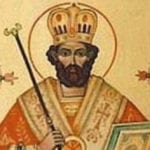 Movies and TV
Movies and TV  Movies and TV
Movies and TV  Politics
Politics The 10 Boldest Coup Attempts of the 21st Century
 Weird Stuff
Weird Stuff 10 Things That Would Have Killed You in the Old West
 Books
Books 10 Pen Names More Famous Than Their Authors
 Creepy
Creepy 10 Unnerving Legends from Around the World
 Movies and TV
Movies and TV 10 Amazing Lead Actor Ideas for Superhero Movies
 Our World
Our World 10 Crazy Facts about Cycads That Might Surprise You
 Technology
Technology 10 World-Changing Examples of Turning Dumb Technology into Smart Technology
 Pop Culture
Pop Culture Ten Celebrities Who Straight-Up Lied on Home Tours
 Animals
Animals 10 Remarkable Things We’ve Recently Learned about Animals
 Movies and TV
Movies and TV 10 Misdirections Directors Used to Manipulate Actors
 Politics
Politics The 10 Boldest Coup Attempts of the 21st Century
 Weird Stuff
Weird Stuff 10 Things That Would Have Killed You in the Old West
Who's Behind Listverse?

Jamie Frater
Head Editor
Jamie founded Listverse due to an insatiable desire to share fascinating, obscure, and bizarre facts. He has been a guest speaker on numerous national radio and television stations and is a five time published author.
More About Us Books
Books 10 Pen Names More Famous Than Their Authors
 Creepy
Creepy 10 Unnerving Legends from Around the World
 Movies and TV
Movies and TV 10 Amazing Lead Actor Ideas for Superhero Movies
 Our World
Our World 10 Crazy Facts about Cycads That Might Surprise You
 Technology
Technology 10 World-Changing Examples of Turning Dumb Technology into Smart Technology
 Pop Culture
Pop Culture Ten Celebrities Who Straight-Up Lied on Home Tours
 Animals
Animals 10 Remarkable Things We’ve Recently Learned about Animals
10 African Myths And Legends
Africa is the second-largest continent in the world. Among its one billion inhabitants, more than 1,000 languages are spoken, and there is a massive variety of ethnic religions. In most African cultures, history and beliefs have been explained and passed on through oral traditions and storytelling. Many narratives deal with common concepts such as life after death or the birth of the universe, but they also include belief in magic, ancestor spirits, celestial beings, and an assortment of unusual legends that pertain to its animals.
Far from being seen as relics from the past, these stories still form an integral part of many Africans’ daily lives and are a testimony to their principles and beliefs.
10 Huveane
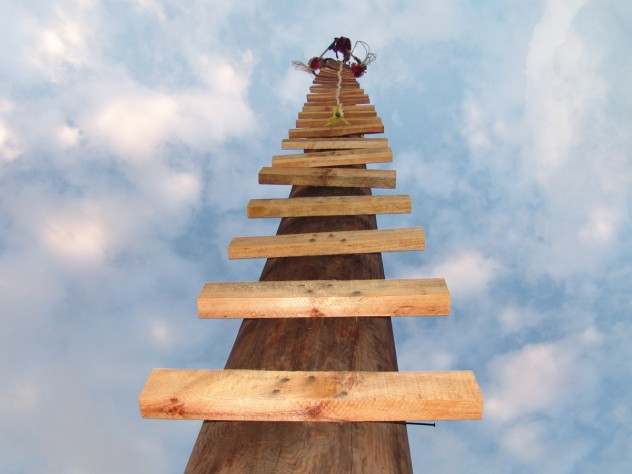
In many African stories, Huveane is the first man, while in others he is portrayed as a conniving deity. For the Basotho and Bavenda peoples of Lesotho, South Africa, he is their creator. After the creation of the earth and the heavens, Huveane wanted to enjoy some peace and quiet while proudly admiring his handiwork. Unfortunately, that was about the same time that humans taught themselves about the birds and the bees. This was great for them, but all the noise was too loud for Huveane. In an unusual fashion, Huveane ascended into the heavens by driving pegs into it and climbing to the top. As he climbed he removed each peg so that no human would ever follow him.
9 Kaang
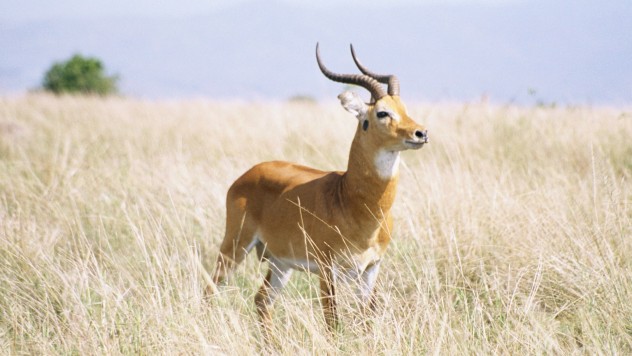
The Bushmen, also called the Khoi or San, are the nomads of Africa. In the last few decades, many have become farmers due to the dangers that our modern life poses to their traditional hunter-gatherer lifestyle, but their territory once stretched from the Cape to Kenya. The Bushmen are experts at finding water, and their advice is often sought out due to their precognitive dreams and divining capabilities.
According to their beliefs, the supreme god Kaang created the world but sent death and destruction after experiencing too much disobedience and antagonism. Even though he lives in the sky, his invisible spirit still resides in all living things. In one story Kaang’s wife gave birth to an eland (African antelope). The god nurtured the calf but it was mistakenly killed by his two sons. Kaang demanded that the eland’s blood be boiled. The subsequent fatty residue was scattered across the landscape, in turn becoming other antelope and animals. In this manner, Kaang provided the meat that his people hunt, kill, and eat to this day.
8 Adu Ogyinae
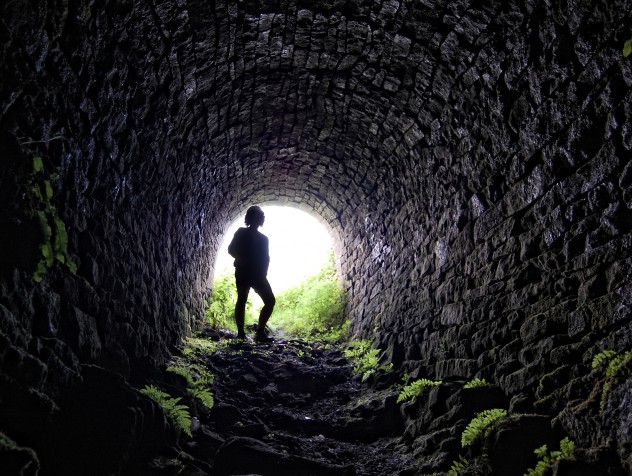
According to Akan mythology, all humans lived deep within the earth. One day, seven men, five women, a leopard, and a dog crawled out of a hole made by a massive worm. Looking around them, the astonished people became terrified, but Adu Ogyinae—the first man on the surface—seemed to understand the world and its wonders. He calmed them and gave them strength by laying his hands on them. Adu Ogyinae also took charge and grouped the people into work teams. He coordinated the building of their first shelters until a tree he was chopping down fell on and killed him.
7 The Biloko

The Biloko are diabolical dwarf-like entities believed to roam the nethermost regions of the rainforest in central Zaire. According to the legends, these beings are restless ancestor spirits who still harbor resentment toward the living. They zealously guard the forest and its living creatures from the hollow trees in which they hide. Women lose consciousness at the sight of them and only the most daring hunters enter these forests and survive. Apart from their hideous appearance—no hair, long sharp claws, and sharp-toothed mouths that can open wide enough to swallow a human being whole—they also have a tendency to bewitch and eat all those who come under their spell.
6The Zambezi River God
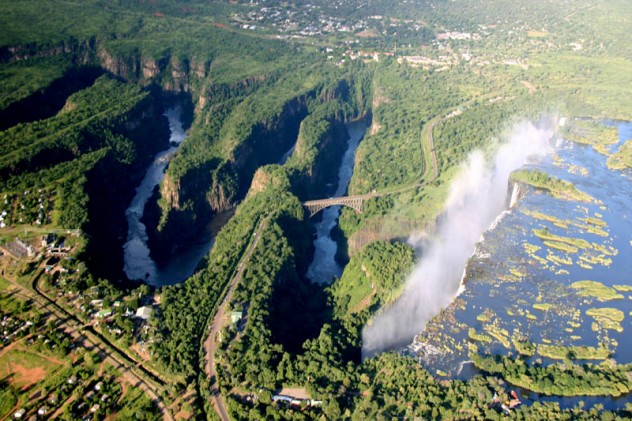
The legendary Zambezi River God, or Nyaminyami, is a dragon-like creature believed to command all life in and on the mighty Zambezi River, the fourth-largest river system on the continent. According to one fable, the Kariba Dam project (started in 1956) shattered the peaceful existence of the Batonga people who had lived in the Zambezi Valley for hundreds of years. Asked to relocate, the Batonga were certain that Nyaminyami wouldn’t allow the dam to be built. Barely a year after the project began, a severe flood struck, killing several workers and destroying the partially built dam. For three days, relatives waited in vain for human remains to be recovered. Finally, the elders of the tribe explained that only a sacrifice would appease Nyaminyami’s displeasure. At this, a calf was slaughtered and placed in the water. The next day, the bodies of the workers were found in its place. The dam was finished in 1977.
5 The Hippopotamus

This remarkable African mammal is usually featured as a goddess in African legends. Worshiped in ancient Egypt as Tawaret, the goddess of fertility and childbirth, she was essentially regarded as a protective and caring deity.
In Mozambique, the Ronga people tell the legend of a mother who left her child with Mother Hippo for safekeeping as the child’s life was threatened by an envious rival. Every night, Mother Hippo would emerge with the child so that it could suckle from its mother.
On the other hand, male hippopotami are usually seen as shape-shifting beasts. According to the legend of the hero Fara Maka, one such beast ate all the crops in the fields. The hero threw all his spears and sent black hounds against it, but the monster continued eating and could only be subdued and killed after a spell was placed on it by the hero’s wife.
4 Kalunga
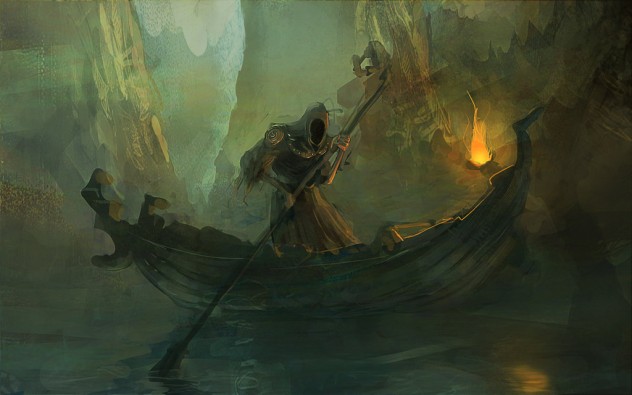
In an Angolan folktale, death is explained like this: heartbroken after the death of his favorite wife Muhungu, Chief Kitamba ordered his people not to speak or eat until she could be brought back to life. The headmen of the tribe asked a medicine man to fetch the queen from Kalunga (the world of the dead). The medicine man ordered all the people of the village to wash themselves with infused herbs and shortly afterwards, descended into the land of the dead with his son.
Following a road, the man soon encountered the queen. She showed him Kalunga-ngombe, the lord of the underworld, and explained that he devours everyone in the end. She also pointed to a shadowy figure in chains—the spirit of Chief Kitamba, who was destined to die soon. Giving him a funerary bracelet as proof of his encounter, the queen sent the medicine man back, telling him that no one who entered Kalunga could ever leave and that he shouldn’t eat any of the food or speak of Kitamba’s impending death. Otherwise, he and his son would both be forced to stay in the underworld. When he returned, he presented the chief with the bracelet, and the chief confirmed that it was indeed that of Muhungu.
3 Anansi
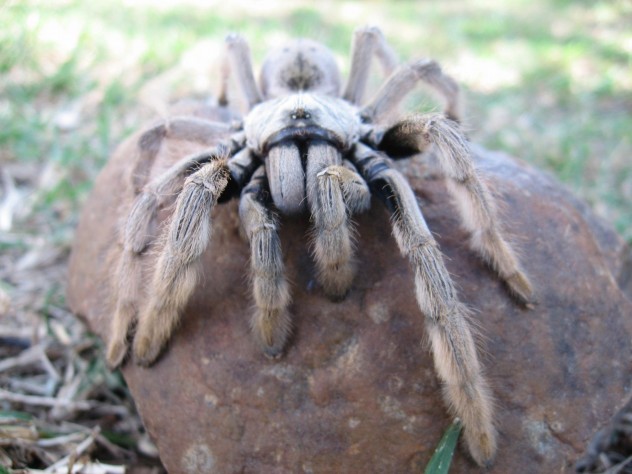
The exploits of Anansi, West Africa’s great trickster-god, are described in hundreds of folktales. Usually in the form of a spider, his stories mainly deal with his attempts at fooling humans into stealing or doing something immoral that would benefit him in some way. These attempts normally fail miserably, teaching the listeners various life lessons. One tale tells of his attempt to hoard the entire world’s wisdom into a pot for himself. When he succeeded, he attempted to hide the pot at the top of a tree where nobody could find it. He tied the pot in front of him and tried to climb the tree, but progress was slow as he kept sliding and losing his grip. His son, who had followed him, finally asked him why he didn’t tie the pot to his back so that he could climb more easily. As he realized his son’s ingenuity, the pot slipped and fell to the ground. The wisdom fell out and a sudden rainstorm washed it into the river and from there to the waters of the ocean, so that everyone in the world now owns a little bit of it.
2 The Magic Of The Lovedu Rain Queens
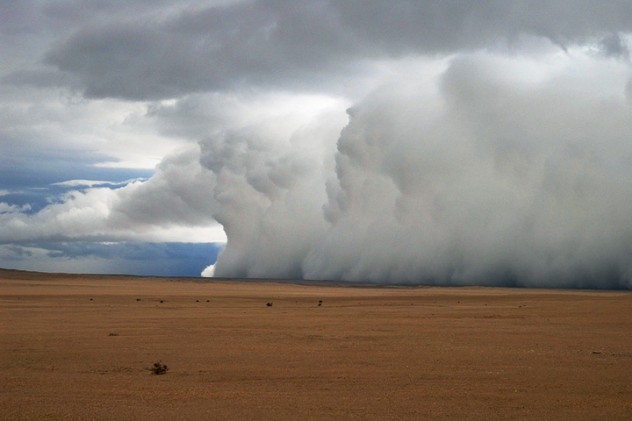
To the Lovedu people of Mpumalanga, South Africa, the Rain Queen is a fundamental part of their culture and history. Called Mudjadji, the queen is said to be a living incarnation of the rain goddess. As she is the embodiment of rain, even her state of mind is said to influence the weather. The Mudjadji is also believed to be able to send storms to destroy the Lovedu’s enemies or gentle rain to nurture their friends. Every year, the Rain Queen’s powers are displayed at the Ga-Modjadji settlement during the rainmaking ceremony. The queens are all expected to commit suicide by poison at the age of 60. On that day, all of the queen’s rainmaking ingredients, prized objects, and incantations kept secret throughout her reign are passed on to her successor.
1The Mysterious Queen Of Sheba
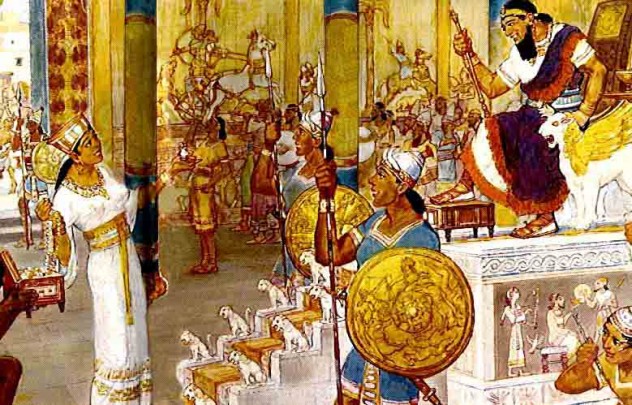
We know of the Queen of Sheba from various sources, including the Bible and the Qur’an. Whether she was a queen regent or a queen consort, we do not know. Her full name isn’t ever mentioned, but most scholars believe her kingdom may have been in the region of Ethiopia. The royal family of Ethiopia claims to be direct descendants of the child born to the queen and King Solomon. In their legends, the queen is named Makeda.
According to the Kebra Negast, the story goes that the king invited Makeda to a ceremonial feast where spicy food was deliberately served. Because she was staying the night, the queen asked Solomon to swear he wouldn’t force himself on her. He said he wouldn’t take anything from her if she didn’t take anything from him. Unfortunately, she got thirsty during the night, woke up, and reached for some water that was placed close to her bed. The king appeared, reminding her of her promise, as water was the most esteemed of all earthly possessions. The queen took the water and drank it, so setting the king free of his promise.

